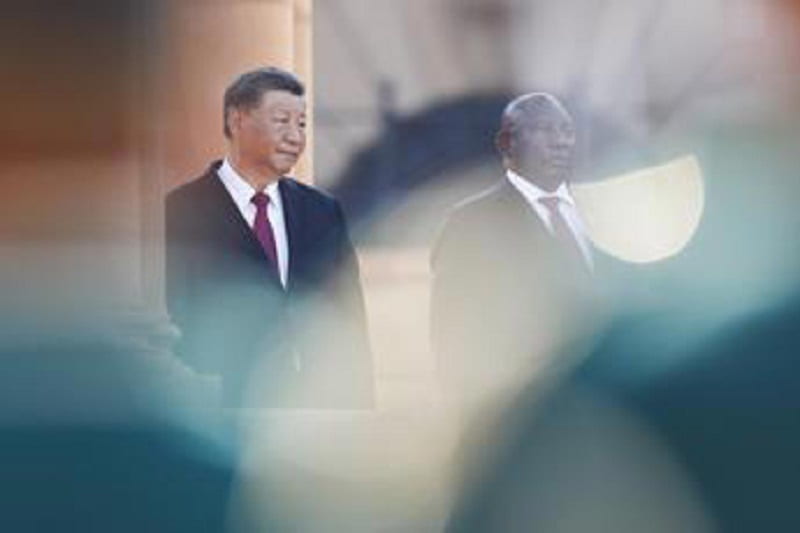BRICS coalition EV Cars – Brics vs G7? Xi calls for a “rapid expansion” of the BRICS towards new countries – 24-08-2023 - Arhive
BRICS coalition EV Cars
Crude Oil Prices Trend

Crude Oil Prices Trend by Polyestertime
Redefining the Perception of Plastics in Design: Embracing Sustainability and Aesthetic Innovation
Plastic, a material deeply woven into the fabric of design, finds itself at a crossroads of perception and sustainability. Designers across the globe are steering their creative endeavors towards sustainable alternatives, driven by mounting concerns over plastic pollution and its adverse impact on the environment. The recent World Plastic Connection Summit, held in Sao Paulo, Brazil, underscored a pivotal shift in the world of design – a shift towards bioplastics as the favored choice over conventional recyclates.
Throughout history, plastics have been instrumental in realizing the fundamental objectives of design, which center around enhancing the human experience. Embracing plastic’s remarkable versatility and cost-effectiveness, designers have democratized access to countless products, shaping the modern world. Brazilian designer Cecilia Consolo highlighted this transformative power of plastics, noting that they have played a pivotal role in improving people’s quality of life. However, the trajectory of plastic’s popularity took a downturn due to a series of unfortunate missteps, coupled with mismanagement of waste, leading to a tarnished public perception. BRICS coalition EV Cars
Eminent Finnish designer Susanna Bjorklund aptly captured the prevailing sentiment: “Plastics have a PR problem – but no one wants to buy an ugly product no matter how sustainable it is.” This encapsulates the challenge faced by designers today – to bridge the gap between sustainability and aesthetic appeal. The quest is to imbue materials with the alluring attributes of traditional plastics while maintaining a strong sustainability profile.
Bioplastics, as demonstrated by the consensus at the World Plastic Connection Summit, emerge as the frontrunner in this transformative journey. German designer Sascha Peters projected optimism about the future of innovation in biomaterials, citing President Biden’s commitment to replace 90% of fossil fuel-based plastics with biomaterials by 2043. The summit resonated with discussions and presentations that echoed this sentiment, with numerous suggestions for bioplastics replacing conventional counterparts. Parallelly, ecodesign strategies and takeback schemes garnered attention as promising pathways toward sustainability.
Interestingly, the emphasis on increasing the use of recycled plastics was notably absent from the designers’ discourse. Although bioplastics currently constitute merely 1% of the overall plastics industry, their projected growth may not significantly impact the circular plastics economy in terms of volume. The reasons behind this reticence toward recyclates remain unclear. However, a plausible explanation could be the ease of promoting the perception that a product derived from corn-based PLA is inherently more sustainable than one crafted from 70% recycled PS plastic. BRICS coalition EV Cars
Amidst these deliberations, an intriguing dimension that could potentially reshape public perception of plastics, be it virgin or recycled, is color. The unveiling of the “Colour Trends for Plastics 2024” stood out as a notable highlight of the World Plastic Connection Summit. Curated by renowned designer Jum Nakao, the palette drew inspiration from the vivid hues of Brazil. Nakao’s visionary palette infused colors reminiscent of Brazil’s landscapes, wildlife, culinary delights, artifacts, and even its iconic caipirinha cocktail. With an earnest plea, Nakao urged for the colors to embody a sense of Brazilian identity, ultimately enhancing the aesthetics and cultural significance of plastics.
In essence, the contemporary design landscape is navigating a pivotal juncture where sustainability and aesthetic innovation converge. Plastics, once celebrated for their transformative potential, now grapple with public perception challenges due to their environmental impact. Designers, armed with a vision for positive change, are increasingly embracing bioplastics as a pathway to balance aesthetics and sustainability. While bioplastics gain momentum, the potential of recycled plastics remains largely untapped, potentially overshadowed by more eye-catching alternatives. BRICS coalition EV Cars
In this journey of transformation, color emerges as a potent tool to reshape the narrative around plastics. By infusing plastics with the vibrant hues of cultures and landscapes, designers have the opportunity to redefine their identity and cultural significance. The World Plastic Connection Summit’s embrace of color trends underscores the role of aesthetics in influencing public perception and acceptance.
As designers, innovators, and consumers collectively engage in redefining the role of plastics in design, the narrative is shifting. The convergence of sustainable practices and aesthetic allure promises a reimagined future where plastics, both bioplastics and recycled, find their place in a harmonious, eco-conscious design paradigm.
The challenge remains to sculpt a narrative that not only celebrates the innovative potential of plastics but also emphasizes their sustainable essence – a narrative that transcends societal misgivings and fosters a genuine appreciation for a material that has indelibly shaped modern design. BRICS coalition EV CarsBRICS coalition EV CarsBRICS coalition EV Cars

The BRICS coalition, comprised of Brazil, Russia, India, China, and South Africa, once a united force with shared economic goals and a stance against Western dominance, is now facing significant challenges
The recent meeting in Johannesburg, which was intended to showcase their unity, has instead highlighted growing divisions among the member nations. Notably, the most prominent cracks are evident in India and South Africa, countries with historical ties to the British empire. These nations appear increasingly hesitant to align themselves with the aggressive and potentially violent ideological stance against English-speaking nations, even though they are part of this same group.
The shift in India’s approach is particularly noticeable. When Indian President Modi received exceptional honors during his visit to the White House, it became clear that India was altering its course. India’s transformation into a major global refinery and gas station, marked by its reception of Russian oil under sanctions and subsequent high-profit resales, indicates a departure from the BRICS’ anti-Western stance.
Moreover, India’s participation in joint military exercises with the United States along its border with China underscores its willingness to cooperate with the West against potential adversaries. BRICS coalition EV Cars
China, a central player in the BRICS alliance, is facing internal challenges that undermine its unity and strategic decisions. President Xi Jinping’s leadership is experiencing turmoil as the Chinese Communist Party grapples with internal divisions over strategic choices. China’s aspiration to challenge American dominance in the South China Sea faces obstacles due to economic crises and food shortages in its rural areas. The fallout from the decades-long one-child policy has resulted in a gender imbalance, leaving millions of Chinese men unable to contribute to either procreation or economic growth. The United States is leveraging this situation by pressuring China to decide between sustaining access to the American market or facing economic collapse.
Russia, under Vladimir Putin’s leadership, should theoretically wield influence within the BRICS coalition. However, Russia’s internal crises, exacerbated by military and economic missteps surrounding the Ukraine conflict, have undermined its credibility. Putin’s unpopular decisions, such as raising the conscription age and discouraging women from participating in the workforce, have led to discontent among the civilian population.
Brazil’s stance further exemplifies the coalition’s fragility. While Brazil is part of the BRICS group, it is not enthusiastic about escalating tensions with the United States, unlike the coalition’s Cold War history of opposing American influence.
The BRICS’ vulnerability stems from the aftermath of the Ukraine conflict. China’s conditional alliance proposal to Russia highlights the complexities within the coalition, as Beijing disapproves of Russia’s military actions and remains steadfast in its pursuit of regaining control over Taiwan. Russia’s military intervention questions the principle of non-interference in the internal affairs of other major powers, but it also inadvertently exposes China’s questionable legitimacy in its own territorial ambitions. BRICS coalition EV Cars
Amidst these challenges, the Islamic Republic of Iran emerges as an unexpected protagonist. Iran’s utilization of a repressive police state to control its population has paradoxically led to technological growth in nuclear and military capacities. Tehran’s supply of lethal drones to Moscow, used against Ukraine, showcases Iran’s evolving capabilities and its potential to reshape the geopolitical landscape.
In conclusion, the BRICS coalition is undergoing a period of significant strain. The Johannesburg meeting, meant to demonstrate solidarity, has instead brought to light internal divisions among member nations. India’s shifting alignment towards Western interests, China’s internal struggles, Russia’s domestic crises, and the emergence of Iran as a new player collectively underscore the challenges faced by the BRICS as they navigate changing global dynamics. BRICS coalition EV Cars
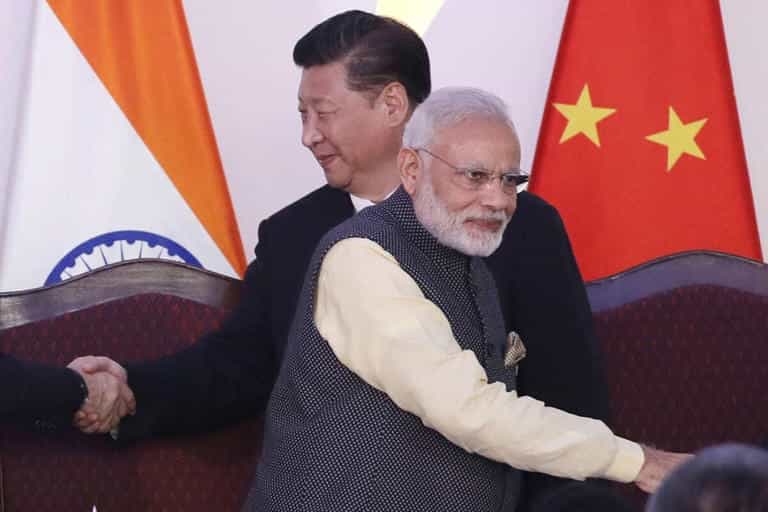
Unlocking the Potential of AI
The world has come a long way regarding awareness about our carbon footprints’ lasting impact over the years. Global warming and the climate crisis have become major topics of discussion, with governments and organizations worldwide acting to reduce our carbon emissions.
One of the most impactful initiatives in residential and commercial settings to minimize the strain on the environment is recycling. This includes reusing materials like glass, plastic, and paper and capitalizing on reusable energy sources.
But while these efforts are highly commendable, our reliance on manual labor for waste management and recycling has limitations. It’s expensive and time-consuming, and the entire process is subject to human error. AI, however, is changing this landscape in monumental ways, paving a path for a much more sustainable future.
AI-Driven Sorting and Separation Technologies
According to the World Bank, it’s expected that global waste will increase by 70% in 2050. However, advanced technologies are now emerging to help tackle this problem – AI being a major component BRICS coalition EV Cars
Advanced Robotic Sorting Systems
The introduction of robots in the waste management industry has improved the speed and efficiency of sorting tenfold. AI sorting programs now work effectively to separate various materials thanks to sensors that detect and sort recyclable materials. They can also remove harmful contaminants from food waste and certain hazardous materials.
And because AI, by nature, continuously learns and adapts to new information, robot sorting systems continue to become more efficient and accurate the longer they’re in use
Optical Recognition and Machine Learning
Optical recognition and machine learning technologies allow for more precise sorting and separation of waste. These technologies enable the identification of materials and contaminants by using cameras and sensors to scan each item. The technology can also learn what to look for by analysing the mass data it collects.
In this way, it can better recognize different waste materials and make better-informed decisions on how to sort them. This is particularly useful for recycling plastic waste, which is notoriously difficult with manual sorting methods BRICS coalition EV Cars
Increased Efficiency and Reduced Contamination
AI-driven waste separation technologies have a significant impact on reducing the recycling and operational expenses in the waste management industry. Using machine learning and advanced robotics, the technologies can increase speed and accuracy, reducing labour costs and higher recycling rates.
Additionally, these advanced technologies filter out contaminants and other unsuitable waste materials, reducing the need for manual involvement and minimizing contamination. This, in turn, leads to more efficient and cost-effective recycling processes.

Exploring the Enigma of Abandoned Electric Cars in China
China, at the vanguard of the global electric car market, stands as a testament to both achievement and inefficiency, where triumph and wastefulness converge in a paradox. Among the towering successes, an unsettling spectacle unfolds – scores of forsaken battery-powered vehicles scattered across the land, transforming into eerie electric vehicle graveyards. Recently, Bloomberg delved into this bewildering phenomenon, unravelling its layers in a captivating report accompanied by an insightful YouTube video.
The Genesis of the Abandoned Fleet Over a decade ago, China embarked on a journey to incentivize the creation and adoption of electric cars, driven by a dual purpose: the reduction of carbon emissions and the incubation of a cutting-edge industry. A diverse array of about a hundred automakers, spanning both traditional and emergent players, embraced this mission, birthing a multitude of battery-powered vehicles.
The initial surge in demand was propelled predominantly by ride-hailing companies, which procured or leased electric cars to furnish eco-friendly transportation to their clientele. This first wave of electric vehicles was often characterized by simplicity and limited range, with distances per charge frequently confined to less than 100 kilometers.
The Costly Bloom and its Thorns Yet, the surge in electric cars was not without a high price tag. BRICS coalition EV Cars
The government generously disbursed billions of dollars in subsidies, inadvertently fostering the growth of subpar manufacturers and triggering speculative financial activities. Concurrently, an unforeseen conundrum emerged – the rapid obsolescence of many vehicles due to the relentless march of technology and an increasingly cutthroat competitive landscape.
The tale unravels with poignant scenes of abandoned electric vehicles, left in limbo by owners and ride-hailing companies ensnared by bankruptcy or fleet renewal. Urban landscapes in various Chinese cities, including Hangzhou, now harbor surreal electric car graveyards where rows upon rows of vehicles languish in the embrace of weeds and debris. In some instances, the passage of time has been so protracted that verdant plants now flourish atop the once-shining hoods. An eerie déjà vu of the bicycle-sharing market debacle of 2018 comes to mind, when millions of bikes met a watery grave or were strewn across desolate parking lots as the fortunes of tech-backed startups like Ofo and Mobike ebbed and flowed. BRICS coalition EV Cars
Prospects and Challenges on the Road Ahead The trajectory of electric vehicles in China is tethered to the ingenuity of manufacturers and their capacity to align with the evolving demands of a discerning and conscious consumer base. Innovation becomes not just a byword but an imperative. Simultaneously, the vexing issue of the disposal of obsolete and discarded vehicles looms large, a challenge that extends beyond the realm of environmental preservation to encompass matters of safety.
In summation, China’s journey into the electric car frontier paints a multifaceted portrait of triumph and tumult, advancement and abandonment. As the nation leads the global charge towards greener transportation, the setbacks serve as poignant reminders of the complexities inherent in such seismic shifts. Ultimately, it is the synergy between innovation, adaptability, and responsible waste management that will sculpt the contours of the nation’s electric car narrative, transforming it into an evolving saga of progress and sustainable growth. BRICS coalition EV Cars
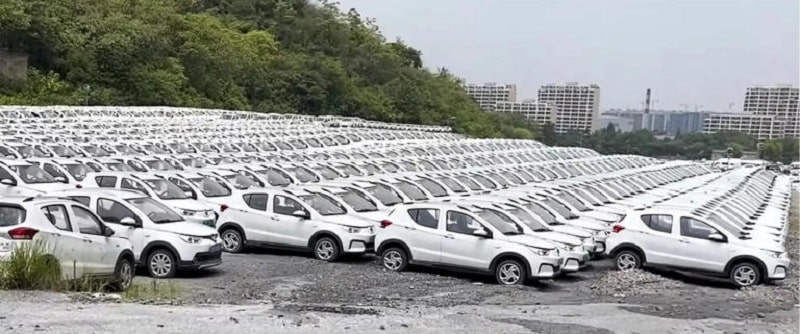
In August 2023, GEA, a technology company specializing in process engineering and equipment, has partnered with Britvic, one of the UK’s prominent soft drinks manufacturers, to implement a heat recovery system at Britvic’s Beckton facility in London
This project aims to significantly reduce the factory’s carbon emissions by approximately 1,200 tons annually, which is equivalent to the energy consumption of around 500 homes in the UK.
Britvic’s Beckton site is responsible for producing 2,000 drinks per minute, including popular beverages such as Robinsons, Tango, and Pepsi MAX. GEA’s contribution to the project involves supplying two industrial ammonia heat pumps and a large thermal storage tank. BRICS coalition EV Cars
This initiative is a significant step for Britvic in its commitment to reducing direct carbon emissions by 50 percent by 2025 and ultimately achieving net-zero carbon emissions by 2050. Sarah Webster, the Director of Sustainable Business at Britvic, highlights that the project aligns with the company’s science-based targets and sustainability strategy.
The heat recovery system’s operation involves converting a substantial portion of Britvic’s process heating, which traditionally relied on natural gas steam boilers, to a carbon-free system driven by heat pumps. GEA’s designed heat recovery system makes use of low-temperature waste heat generated during the production process, which was previously released into the atmosphere. This waste heat is now repurposed to heat water up to 92°C, which will be distributed throughout the facility. By utilizing this approach, Britvic aims to decarbonize 50 percent of its heat demand by moving away from fossil fuel-based sources. BRICS coalition EV Cars
Additionally, the system has a provision for a valved connection capable of recovering up to 750 kW of heat from other sources in the future. GEA’s expertise in heat pump technology and process integration was crucial in successfully upgrading the existing industrial steam heating systems to incorporate heat pump technology.
Simon Gurr, Sales Manager at GEA’s Heating & Refrigeration Division, emphasizes that this project underscores GEA’s commitment to leading the way in industry decarbonization. GEA’s proficiency in heat pump technology and process integration played a pivotal role in providing the right solution for Britvic’s sustainability goals.
The collaboration between GEA and Britvic demonstrates how innovative technological solutions can contribute to reducing carbon footprints and promoting sustainability in the manufacturing sector. BRICS coalition EV Cars
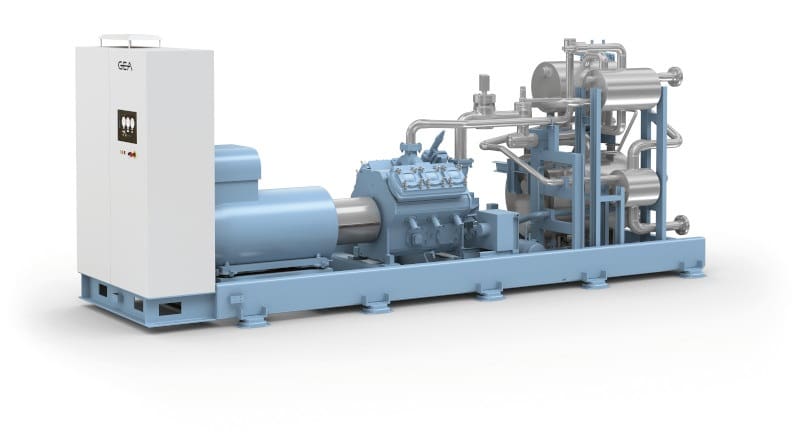
Recover™ and Lands’ End Join Forces to Revolutionize Textile Waste into Eco-Friendly Denim
In a groundbreaking collaboration, Lands’ End, the quintessential American lifestyle brand, has teamed up with global pioneers in recycled cotton fiber, Recover™, to unveil a revolutionary line of sustainable denim. This innovative collection represents a significant step towards the integration of recycled materials in fashion, with a spotlight on low-impact design.
The dynamic partnership between these two industry leaders has yielded a collection of enduring denim pieces for both men and women, each incorporating a remarkable 20 percent of Recover’s recycled cotton fiber derived from discarded textile waste. This cutting-edge approach not only brings a touch of timeless style to the table but also embodies a bold commitment to transforming the fashion landscape towards one that prioritizes environmental consciousness. BRICS coalition EV Cars
Recover™ holds the key to driving this change, showcasing its exceptional recycled cotton fiber, a veritable game-changer in sustainable garment production. By utilizing this premium recycled material, the collaboration inherently lessens the ecological footprint of these denim creations, setting them apart from conventional counterparts made from virgin fibers. This partnership stands as a poignant exemplar of how the seemingly insurmountable issue of textile waste can be ingeniously upcycled, ushering in a new era of conscientious manufacturing.
Intriguingly, the embrace of Recover’s recycled cotton fiber not only signifies a monumental leap forward for Lands’ End but also aligns seamlessly with the brand’s overarching ambition to transition into a fully circular enterprise. This seamless integration of Recover’s innovation into Lands’ End’s operations serves as a resounding testament to the brand’s genuine commitment to sustainability, which resonates both with environmentally conscious consumers and industry peers.
Boris Mercier, the erudite Senior Vice President of Marketing at Recover™, expressed his enthusiasm for the collaboration, stating, “We’re thrilled to embark on this journey alongside the iconic American label, Lands’ End. Our collaboration aims to catalyze the global adoption of sustainable practices, thus ushering in an era where low-impact fashion takes center stage, captivating consumers worldwide.” BRICS coalition EV Cars
Kym Maas, the accomplished Senior Vice President of Product and Merchandising at Lands’ End, further amplified the sentiment. She remarked, “Lands’ End remains steadfast in its commitment to orchestrating positive change for our planet. By collaborating with trailblazers like Recover, we strive to diminish our ecological footprint, setting an inspirational precedent for the industry. Anticipation builds as we eagerly await the unveiling of our eagerly awaited men’s and women’s denim collection, poised to launch this upcoming fall and holiday season.”
The synergy between these industry forerunners carries profound implications for the future of fashion and sustainability. This landmark partnership not only generates stylish denim wear but also underscores the immense potential of repurposing discarded textiles to craft cutting-edge, sustainable fashion statements. Recover™ and Lands’ End stand as beacons of innovation, steering the fashion industry towards a more responsible, eco-conscious horizon. BRICS coalition EV Cars
In the grand tapestry of the fashion landscape, this collaboration represents a pivotal thread, intricately weaving together the essence of style, ethics, and environmental guardianship. As Recover’s recycled cotton fiber converges with Lands’ End’s classic aesthetic, a harmonious narrative emerges—one that envisions a world where fashion not only adorns the body but also serves as a medium for positive transformation, one denim thread at a time.
Source: Recover™
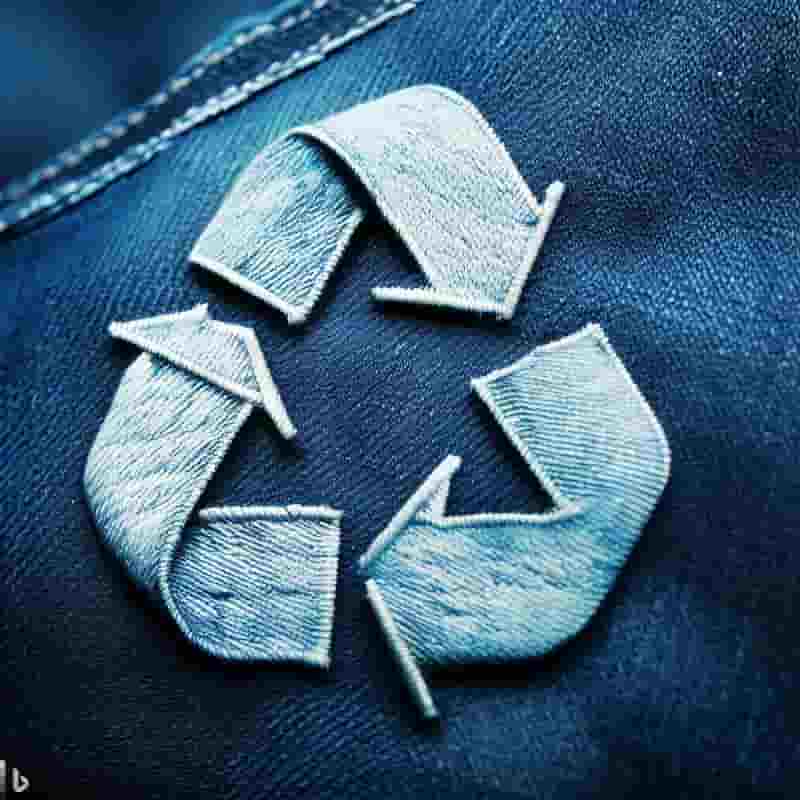
Unexpectedly, Chinese President Xi Jinping chose not to participate in a significant multilateral economic forum during the ongoing BRICS summit in South Africa
Curiously, Xi Jinping was the sole leader among those attending the summit who opted out of the forum. Despite his arrival in Johannesburg on the preceding Monday, Xi’s absence from the business forum on Tuesday afternoon, where leaders of India, Brazil, and South Africa were slated to speak, raised questions. The Chinese leader’s no-show was unaccompanied by an official statement or clarification from Beijing. Within China, there were speculations that Xi might have been dealing with a temporary illness, but the truth behind his absence was unlikely to be disclosed.
Even Russian President Vladimir Putin, connecting remotely, took the opportunity to address the audience. In his speech, he urged the fellow members of the BRICS alliance to collaborate at a heightened level. Putin also disclosed that discussions with African nations about providing wheat free of charge were near conclusion. He assured the audience that Russia remained committed to being a dependable food supplier for Africa. The core principles of the BRICS coalition—equality, mutual support, and respect for each other’s interests—were underscored by Putin as he articulated their collective trajectory toward fulfilling the aspirations of the global majority, or the most populous regions of the world.
Furthermore, Putin emphasized that Russia continued to be counted among the world’s five most economically influential nations, a reality often underestimated by Western experts’ more pessimistic evaluations. BRICS coalition EV Cars
Despite acknowledging market volatilities and the rise in both state and private debts, Putin highlighted Russia’s impressive 6% growth over a span of three years. This growth was coupled with an expansion in the country’s economy.
In contrast to these proactive leaders, Xi Jinping’s conspicuous absence and silence at the BRICS forum left observers puzzled. The BRICS summit, which brought together Brazil, Russia, India, China, and South Africa, presented a significant platform for these nations to address global economic issues and enhance their collective influence. Given China’s economic might and Xi’s role as a prominent world leader, his absence from the forum marked a deviation from expectations. BRICS coalition EV Cars
As the summit progressed, the motivation behind Xi’s absence remained shrouded in mystery. The contrasting approaches of leaders like Putin, who used the opportunity to strengthen partnerships and underscore his nation’s economic prowess, and Xi, who chose not to seize the platform, sparked speculation about China’s strategy and diplomatic intent. Nonetheless, the BRICS summit’s significance persisted, driven by the ongoing efforts of member nations to collaboratively address economic challenges, bridge disparities, and contribute to shaping a multipolar world. BRICS coalition EV Cars
Xi calls for a “rapid expansion” of the BRICS towards new countries
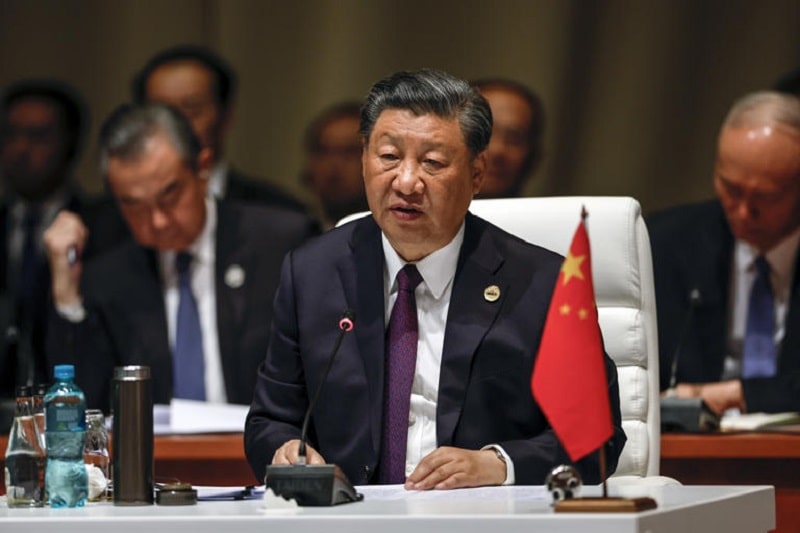
Recycled Fiber Bio-based BRICS – Will the BRICS succeed in overcoming the West? 23-08-2023
BRICS coalition EV Cars

